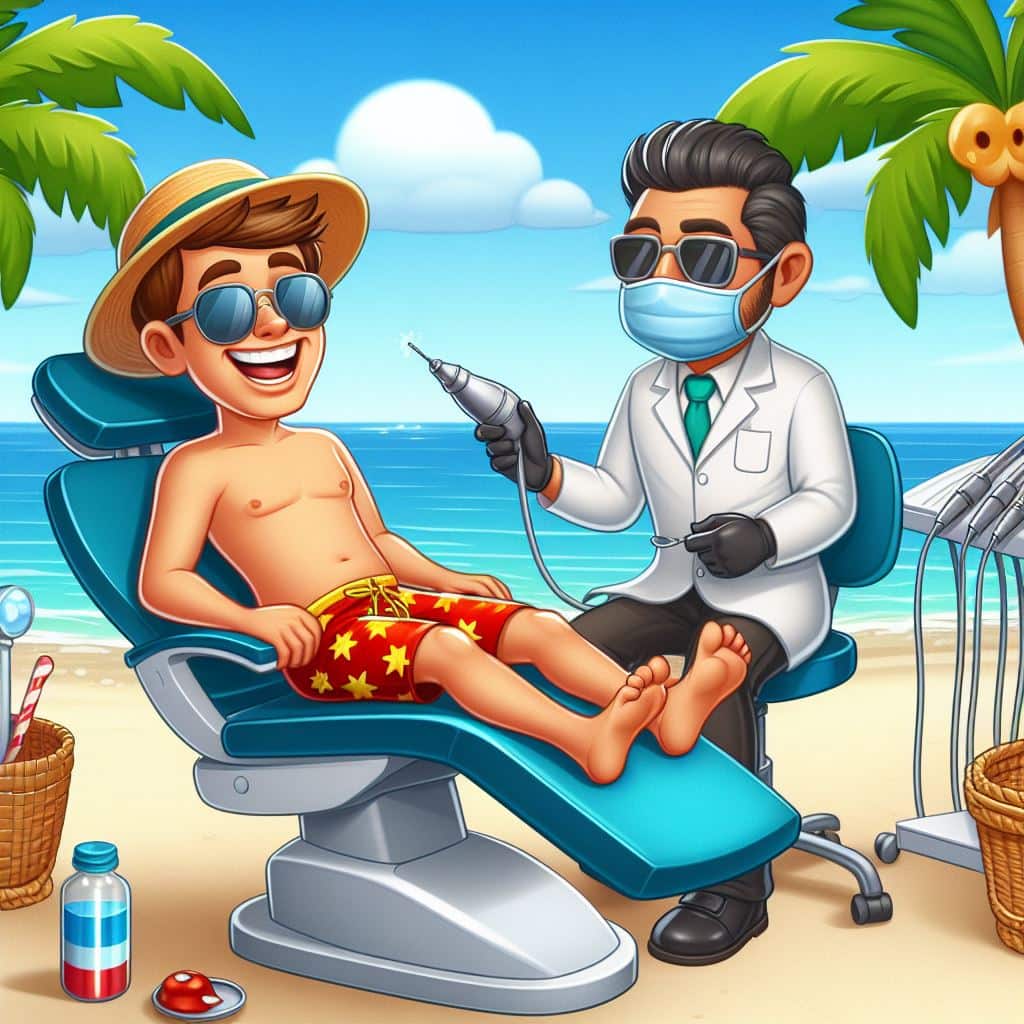Dental tourism has become a booming industry, with millions of people traveling abroad to receive affordable dental care. However, beneath the allure of cheap prices and exotic destinations lies a dark reality. At Pristine Smiles, Juhu, we have seen firsthand the devastating consequences of dental tourism gone wrong. In this blog, we will expose the hidden dangers of dental tourism and reveal what they don’t want you to know.

The Unregulated Industry
Dental tourism is a largely unregulated industry, with many clinics operating without proper licenses or credentials. A study published in the Journal of Dental Research found that up to 70% of dental clinics in popular tourist destinations lack proper accreditation. This means that patients are at risk of receiving subpar care from unqualified dentists.
Empirical Evidence
Numerous studies have highlighted the risks associated with dental tourism. For example:
- A report by the World Health Organization found that dental tourists are at risk of contracting blood-borne viruses, such as HIV and hepatitis, due to inadequate sterilization and hygiene practices.
- A study published in the International Journal of Oral and Maxillofacial Implants found that dental implants placed in countries with lower standards of care had a significantly higher failure rate.
- A news article by the BBC reported on the case of a British woman who died after receiving dental treatment in Hungary.
Hidden Costs
Dental tourism may seem like a cost-effective option, but the hidden costs can be devastating. Patients who receive subpar care may require additional treatment, including corrective surgery, to fix mistakes made by unqualified dentists. A study published in the Journal of Oral Science found that patients who received dental care abroad required an average of $3,000 in additional treatment upon return to their home country.
Lack of Follow-Up Care
Dental tourists often receive treatment and then return home, leaving them without access to follow-up care or emergency services. A study published in the Journal of Dental Research found that up to 50% of dental tourists experience complications after returning home, including infection and implant failure.
Language Barriers
Language barriers can lead to miscommunication and misunderstandings, resulting in patients receiving treatment they did not consent to. A study published in the International Journal of Dental Hygiene found that language barriers were a significant factor in dental tourism complications.
Conclusion
Dental tourism may seem like a convenient and affordable option, but the risks far outweigh the benefits. At Pristine Smiles, Juhu, we prioritize quality and patient safety above all else. We urge patients to do their research and consider the hidden costs and risks associated with dental tourism. Don’t fall victim to the dark side of dental tourism – choose a reputable and accredited dental clinic for your care.
FAQs
What is dental tourism?
Dental tourism involves traveling to another country to receive dental care, often at a lower cost than in one’s home country. It has gained popularity due to the potential for significant savings and access to high-quality treatments.
Why is dental tourism considered risky?
Dental tourism is risky because the industry is largely unregulated in many popular destinations, leading to subpar care from unqualified dentists, inadequate sterilization practices, and a lack of follow-up care.
What are the hidden costs of dental tourism?
Hidden costs can include additional treatment and corrective surgery needed to fix mistakes made by unqualified dentists. These costs can add up, making the initial savings negligible or even resulting in a higher overall expense.
How can language barriers impact dental tourism?
Language barriers can lead to miscommunication and misunderstandings, causing patients to receive treatments they did not consent to or failing to understand post-treatment care instructions, which can result in complications.
What should I consider before choosing dental care abroad?
Consider the clinic’s accreditation, the dentist’s qualifications, patient reviews, the clinic’s hygiene standards, the availability of follow-up care, and potential language barriers.
Are there specific health risks associated with dental tourism?
Yes, health risks include the possibility of contracting blood-borne viruses like HIV and hepatitis due to inadequate sterilization practices and the increased likelihood of complications such as infections and implant failures.
Why is follow-up care important in dental treatment?
Follow-up care is crucial for monitoring the healing process, addressing any complications, and ensuring the long-term success of the treatment. Lack of follow-up care can lead to unresolved issues and further health problems.
How can I ensure the quality of a dental clinic abroad?
To ensure quality, research the clinic thoroughly, verify the credentials and qualifications of the dentists, look for international accreditations, read patient reviews, and check the clinic’s hygiene and sterilization practices.
What are the alternatives to dental tourism for affordable dental care?
Alternatives include seeking out dental schools that offer lower-cost treatments, looking for local clinics that offer payment plans or discounts, and exploring dental insurance options that cover a portion of the costs.
Why should I choose Pristine Smiles, Juhu for my dental care?
At Pristine Smiles, Juhu, we prioritize quality and patient safety. Our dentists are highly qualified and experienced, our facilities meet rigorous standards of care, and we offer comprehensive follow-up care to ensure the best possible outcomes for our patients.
